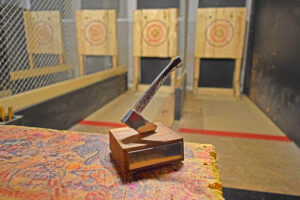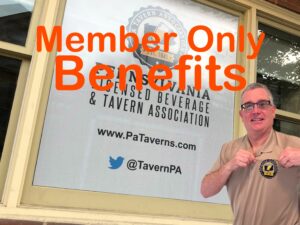 By Annie Stontz, Illinois Casualty Company
By Annie Stontz, Illinois Casualty Company
Axe throwing has become an increasingly popular activity, and many venues have begun catering to this interest. As most of these businesses combine the activity with serving food and alcohol, Illinois Casualty Company’s Underwriters have been receiving questions about whether there is coverage for this.
Most people could understand our concern over the risk that comes with combining alcohol consumption and axe throwing. As the activity has become more popular, we are seeing an increase in mobile axe throwing businesses that offer to bring the sport to a bar or restaurant.
If your bar/restaurant hires a mobile axe throwing business that can provide proof of insurance, will that be enough to protect your business?
There are a few things to consider before offering this activity at your bar/restaurant.
- Is this a one-time event or will it be a regular recurring activity?
- Will the activity take place on your premises or be contained and controlled by the axe throwing vendor?
- If this is a recurring event and your bar/restaurant has facilities in place, what controls are there to prevent axe throwing at times other than when the vendor is present to supervise?
- Does the vendor’s current GL coverage have limits equal to or exceeding that of your policy?
It is highly recommended that you have your attorney review the contract with the vendor. The agreement should clearly make the vendor liable for all injuries resulting from any axe throwing activity and contain “hold harmless” language for your business.
Even if all the boxes are checked, there can still be scenarios where a suit brings your business into the claim. The allegations for an “injury” can be based on negligence, intoxication, or both. The injured party can be a participant or a spectator.
How the claim or suit is presented determines which policy applies and whether you can tender the defense to the vendor. As with many situations like this, the more serious the “injury”, the more aggressively creative plaintiffs get, and the more difficult it is to remove your business from liability.
Understanding the issues will help you determine the extent of the risk you are willing to accept.
Editor’s Note: Illinois Casualty Company is the exclusive preferred vendor of the Pennsylvania Licensed Beverage and Tavern Association for liability insurance products. Qualifying PLBTA Members can save up to 10% on their businessowners and liquor liability insurance. For more information about insuring your business with ICC, visit www.ilcasco.com/find-an-agent and talk to an ICC agent in your area.












